By Eric House
What do the crystal-clear waters of the Mediterranean Sea and the rugged landscape of the Star Wars planet Tatooine have in common? They’re two of the stunning scenes you’ll see on SIT’s Tunisia and Italy: Politics and Religious Integration in the Mediterranean study abroad program.
Not only will you study the interplay of migration and identity across Tunisia and Italy, you’ll immerse yourself in different cultures, strengthen your foreign language skills, feast on fantastic cuisine, take in magnificent sites, and experience personal growth.
Here are just five of the many reasons to study abroad with SIT in Tunisia and Italy.
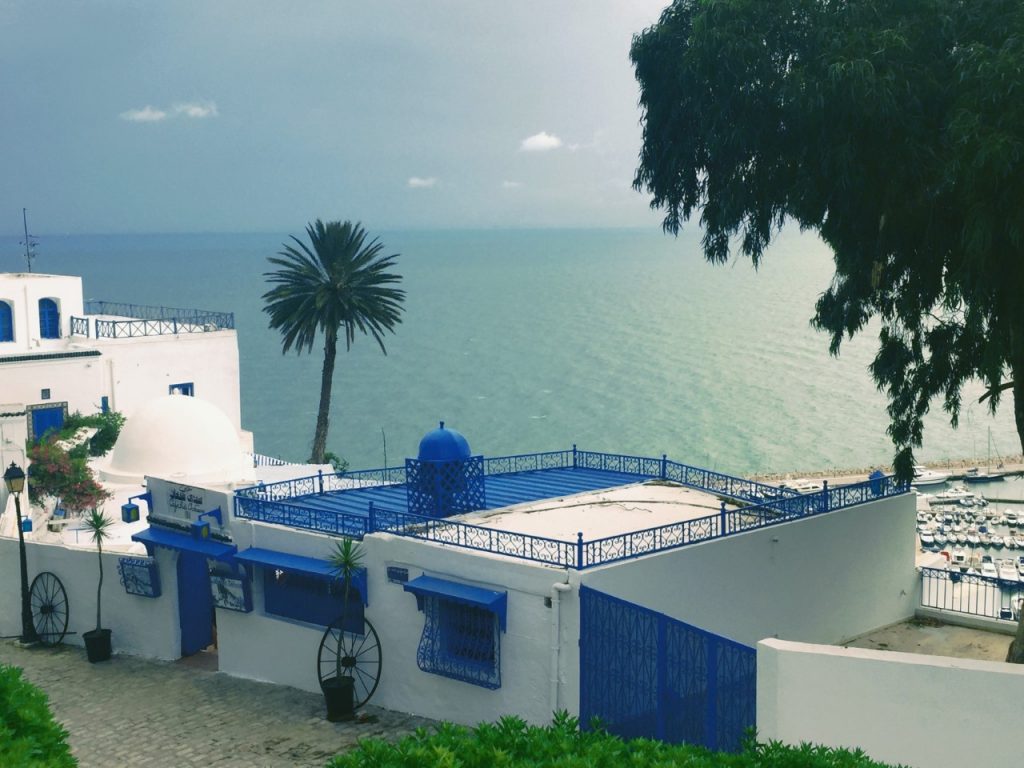
Live in the picturesque coastal village of Sidi Bou Said
Picture-perfect cobbled streets, bohemian cafes, and bleach-white houses with Mediterranean-blue shutters characterize the Tunisian town of Sidi Bou Said. This seaside oasis—at the crossroads of the Mediterranean and the birthplace of the Arab Spring—is where you’ll live during your homestay.
Learn about Tunisia’s transition to democracy while taking in sites that seem straight from a movie scene. In fact, during a southern excursion you’ll encounter troglodyte dwellings and traditional Berber villages used as the set for the planet Tatooine in Star Wars!
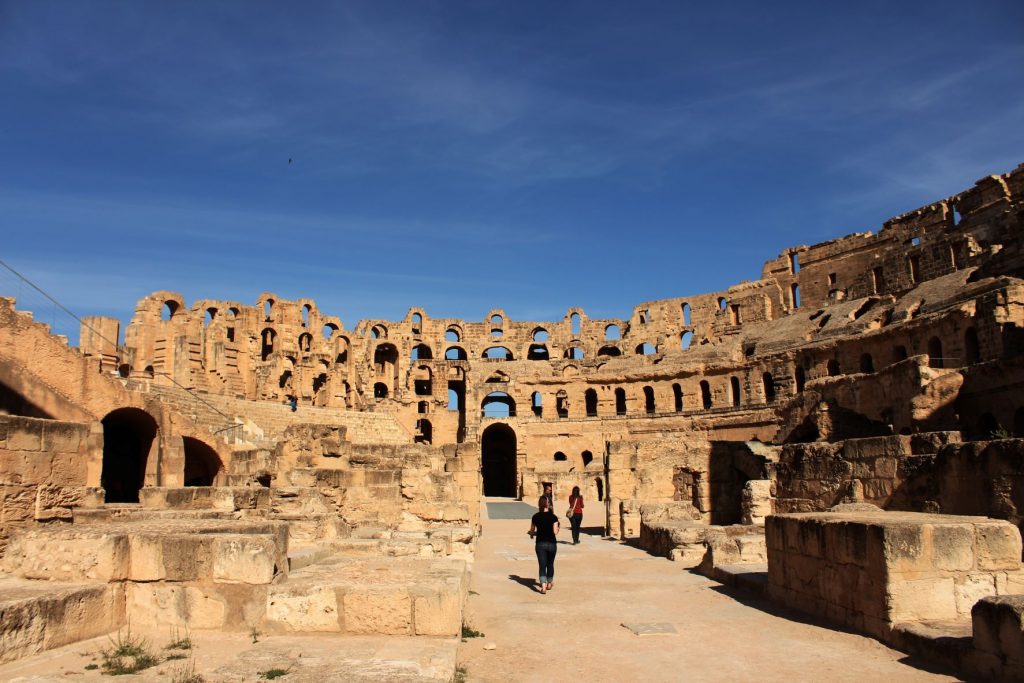
Embark on unforgettable excursions to holy sites, ancient villages, and more
Planet Tatooine isn’t the only otherworldly site you’ll see. History and culture come alive when you visit Turkish and Spanish forts, Africa’s oldest synagogue, and the holy city of Kairouan, a UNESCO World Heritage Site that was the first Muslim settlement in North Africa.
You’ll also cross the Mediterranean to Palermo, the capital of Sicily. During this three-week excursion, you’ll take in the medieval splendor of Taormina, the volcanic grandeur of Catania, and the 18th-century Baroque beauty of Bagheria. Punic, Greek, Roman, Arab, Norman, and Spanish civilizations magnificently collide here.
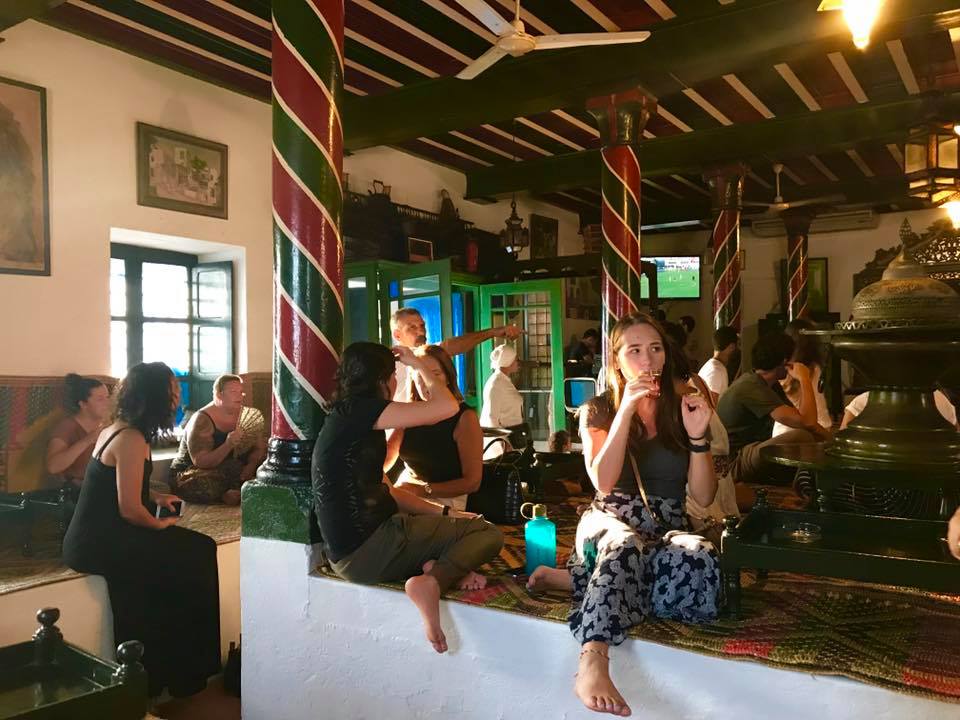
Step out of your comfort zone with cultural immersion
True global education often comes from authentic experiences with different cultures in their local communities. Both Tunisia and Italy have experienced migration and colonization over three millennia. The result is a unique intermix of cultures to learn from.
As you experience everyday activities that take you to the heart of these cultures, their similarities and difference will come alive. Hear from migrant youth as you help them make garments for a local Sicilian market, or from young Tunisian bloggers who participated in the Arab Spring—perspectives that will help you understand Mediterranean politics and identity.
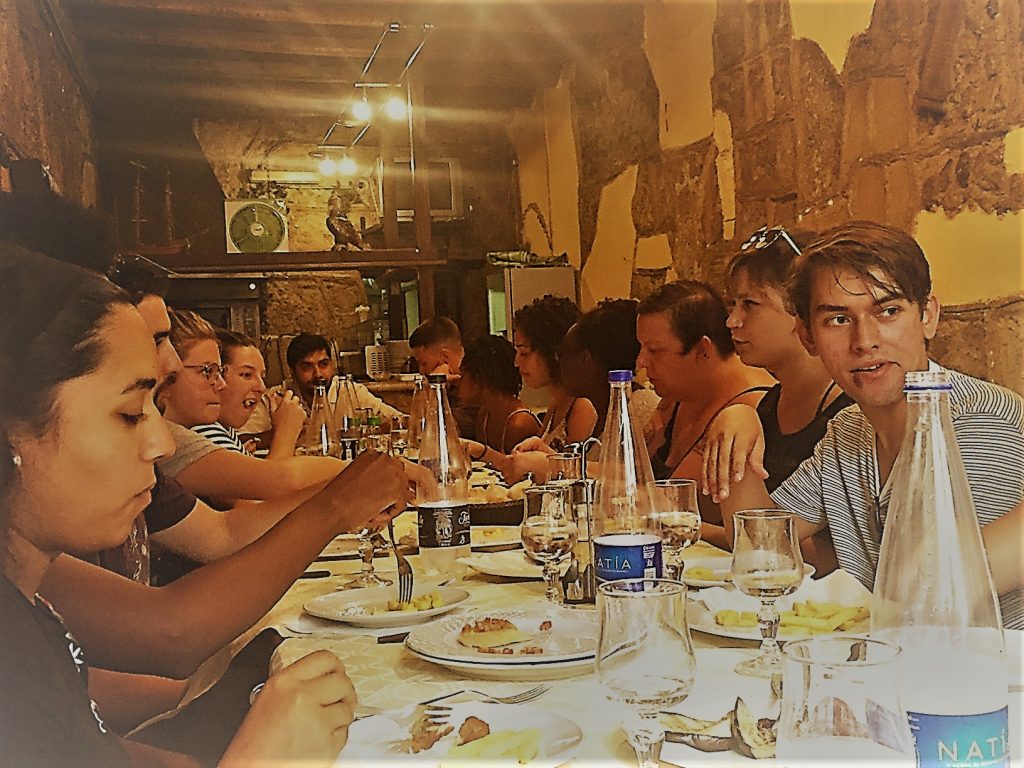
Enjoy a mouth-watering culinary paradise
Bring on the Pasta alla Norma and couscous! Tunisia and Italy have distinct flavor profiles and traditional dishes characterized by vibrant colors and aromas. The two countries’ cuisines will take you to a culinary paradise.
Cooking and food preparation are blended into weekly language activities that strengthen both your language learning and your kitchen skills. At the end of the program, you’ll receive a cookbook as a farewell gift—and a chance to amaze others when you cook for friends back home.
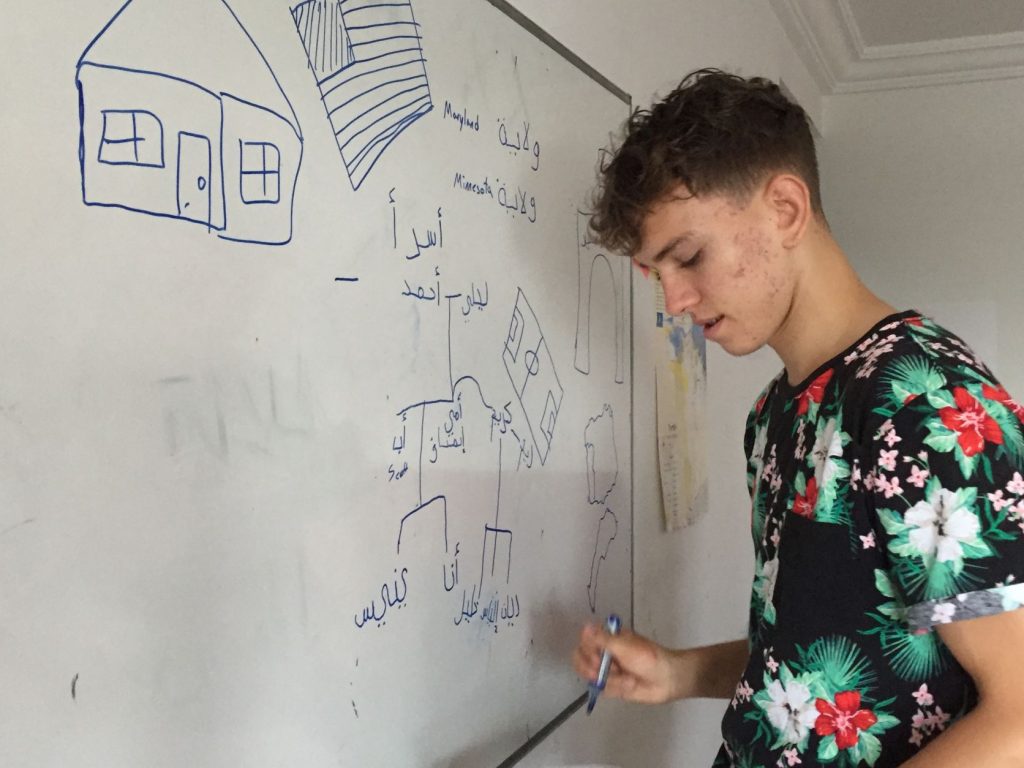
Sharpen your Arabic or French language skills
This study abroad experience straddles North Africa and Europe, so prepare to study and practice multiple languages. Led by language experts, you can study Arabic or French. Take what you learn in the classroom and apply it in everyday conversation during your homestay and excursions.
If you’re ready to embark on a life-changing educational and cultural experience in Tunisia and Italy—andiamo!
Click here to learn more about applying today and discover more of our academic programs.
Rached is professor of English Literature at the University of Tunis El-Manar. He earned his PhD in literature from Essex University. He is interested in Irish studies, comparative literature, and literary translation. He has published numerous articles and books on W. B. Yeats and other modernists. He has also published three books in translation. He is currently working on a collection of comparative essays on modern poets.
Nesrine has an MA in applied linguistics from Manouba University and an MS in education from Mercyhurst College in Pennsylvania. She has taught English at the Tunis Business School and Arabic in the Critical Languages Scholarship Program. In addition, she is an ACTFL OPI tester of Arabic with full certification from the American Association of Teaching Foreign Languages, a certified practitioner in neuro-linguistic programming from the International Neuro-Linguistic Programming Trainers Association, and a meditation coach with World Peace Initiative foundation in Thailand.
SIT Study Abroad Programs

by Natalie Barnes
It is no longer an alarm clock that wakes Annie Seipel in the morning, but the melodic tones of a 5:30 a.m. call to prayer. Her charming fourth-floor apartment is catty-corner from the Errahmen Mosque, located in the heart of the Sahloul neighborhood in the picturesque seaside town of Sousse, Tunisia. From her first day in the Department of Art & Art History at CSU, Annie envisioned her future in exactly this spot.
After spending her final semester of study (December 2018) traveling through Italy and Tunisia, Annie accepted a position as Coordinator of American Corner for Amideast in Sousse. Her new job will allow her to stay in Tunisia for several years while she works with both the U.S. embassy and the local population of students, artists, and those seeking to learn about the United States. She says the most exciting part of the job is that “it offers me the chance to show the wonderful, accepting, artistic side of America to the Tunisian people.” It was her love of metalsmithing, jewelry, and adornment as well as a deep intrigue with the culture and traditional designs of the nomadic people of the Middle East and North Africa that directed her studies at CSU and solidified her decision to stay in Tunisia.
Annie came to CSU with a plan that included finishing her studies abroad, and after serious consideration, she applied to The School for International Training (SIT) program Tunisia and Italy: Politics and Religious Integration in the Mediterranean. SIT doesn’t get as many Liberal Arts majors as some other programs, but her interest in art from the region, coupled with an interdisciplinary minor in Arabic Studies, made this a great match for Annie. Scholarship opportunities from a First Generation Student Award and a Creative & Performing Arts Award secured through the Department of Art & Art History helped make that dream come true.

As an art major, Annie learned about other cultures – crediting her studies for allowing her to better develop acceptance and respect for cultural differences. Her arts background taught her to view and appreciate the Tunisian culture with both a critical eye and inclusive understanding. Active engagement with a number of diverse clubs and groups on the CSU campus gave her experience planning events and marketing the programs in which she was involved, as well as knowledge necessary to serve an academic community. Work with student groups, coupled with classes in her art major, helped her hone her communication and outreach skills to the next level, skills that prepared her for her new job as Coordinator of the American Corner.
During her semester abroad Annie connected closely with the local community. She made the most of networking opportunities, developing deep friendships both with participating SIT students as well as the amazingly welcoming and helpful Tunisian people. Her ongoing internship with an NGO in Tunis as well as her new friendships made the transition from student to ex-pat resident an easier path than it might have been moving to a new country half-way around the globe from America. Through both her study abroad and her new friendships, she learned much about Tunisia, its people, and its culture – she very quickly fell in love and knew that it was where she wanted to stay – a fitting end to a global journey that started in the Department of Art & Art History at Colorado State University.
